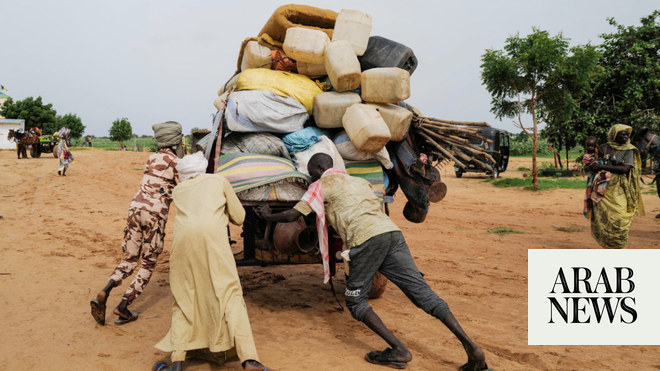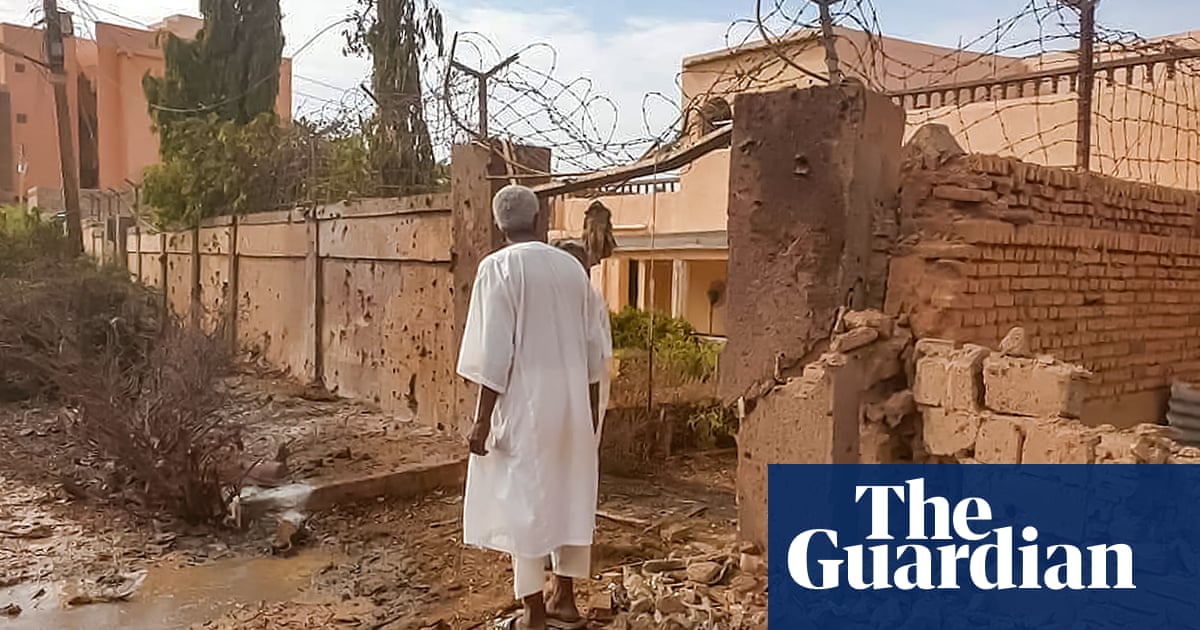
The war between the army chief General Abdel Fattah Al-Burhan and his former deputy, RSF commander Mohamed Hamdan Daglo, has killed more than 3,900 people, according to a conservative estimate by the Armed Conflict Location & Event Data Project
WAD MADANI, Sudan: Residents of an area near Sudan’s capital on Monday were ordered to evacuate, locals said, as fighting between the army and paramilitary forces continues to shake the capital.
“Heavy artillery fire” fell on densely populated areas of the Sudanese capital and nearby areas, witnesses told AFP. In adjacent Omdurman, Khartoum’s battle-scarred twin city, shelling fell on residential homes.
The army and paramilitary forces ordered the evacuation of civilians from Abu Rouf, according to the neighborhood’s resistance committee, one of the many groups that used to organize pro-democracy demonstrations and now provides assistance to families in the line of fire.
The army conducted airstrikes and fired artillery at the Shambat Bridge to cut off access to the area from their foes, the Rapid Support Forces (RSF).
The paramilitary group used the bridge to resupply from the other side of the Nile, according to a resident discussing the evacuations.
The war between the army chief General Abdel Fattah Al-Burhan and his former deputy, RSF commander Mohamed Hamdan Daglo, has killed more than 3,900 people, according to a conservative estimate by the Armed Conflict Location & Event Data Project.
It has displaced more than 3.3 million, according to the United Nations, and plunged millions more into hunger.
Much of the country’s already fragile infrastructure has been destroyed, with more than 80 percent of Sudan’s hospitals no longer in service, the World Health Organization (WHO) said.
The few health facilities that remain often come under fire or are looted, and struggle to provide care.
Consequently, for the victims of sexual violence that has run rampant during the war, “receiving the necessary health care” is an “immense challenge,” Souleima Ishaq Al-Khalifa, the head doctor in the government’s agency combating violence against women, told AFP.
Since April 15, Khalifa and her colleagues have documented 108 sexual assaults in Khartoum and Darfur — the restive western region on the border with Chad where a quarter of Sudan’s 48 million people live.
That toll is likely underestimated, like the human losses, as victims and caregivers are unable to travel due to the conflict.
Survivors of rape face a double burden, she adds, as “there are no more medicines in Khartoum,” and “in Nyala (South Darfur), they cannot reach the hospital because there is an RSF base in the way.”
Entire towns and villages have been destroyed in Darfur, an RSF stronghold, which was already ravaged in the 2000s by a bloody civil war and is now an epicenter of the ongoing fighting.











